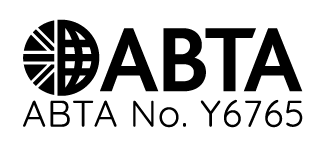The best language learning apps and services
Tuesday 3 August 2021

Learning a new language can be daunting, especially if this is the first time you have set out to do so. Whether you are ticking off something you’ve always wanted to achieve, or want to prepare for a future cruise, there are plenty of ways you can get started.
Technology has opened myriad doors for those with a lust for learning, and languages are no different, with plenty of products and services available to make it that bit easier.
In this article, we uncover some of the best language learning apps and offer some tips for those looking to venture into the world of linguistics.
Rosetta Stone
Price: From £9.99 a month (lifetime packages are available)
Available on: Desktop, Apple, Android, Amazon
Languages available: 24 in total, including Spanish, French and Japanese
Since 1992, Rosetta Stone has pioneered language learning. Thanks to this, the company has a wealth of experience that they use to create tailored study plans that are likely to help you learn as best you can. Their teaching methods focus more on sights and sounds than words, helping you to better converse in a language, rather than focusing on reading a language. Perfect for travellers.
Although they don’t have the largest range of languages available to learn, for those that they do have they offer thorough courses and training on, so you can take your language learning to the next level.

Duolingo
Price: Free, or £6.50 a month for Plus
Available on: Desktop, Apple, Android
Languages available: 37 in total, including Norwegian, Welsh and Klingon
For anyone who has looked for language apps before, the chances are you’ve come across Duolingo, and that is for a reason. By pouring gamification into their learning process, the Duolingo app offers bite-size lessons that allow you to score points, race against a clock and level up as you go. And, if you aren’t looking for a premium experience then it’s one of the best free language learning apps to try out – great if you are just dipping your toes in the water of language learning.
For those who are only looking for a quick lesson every day, Duolingo is perfect. Plus, it is great for those who may be interested in learning multiple languages at the same time or even just brushing up on a language they already know whilst learning a new one.

Babbel
Price: From £5.99 a month
Available on: Desktop, Apple, Android
Languages available: 14 in total, including Indonesian, Russian and Danish
Babbel’s online language courses have some well-regarded tips and tricks to help a learner. It covers writing, listening and speaking, preparing you for any situation and has some great features which mean you can get experience in all three areas.
As well as great courses, Babbel also has podcasts on offer, where they get experts to discuss local cultures, uncover some language secrets and more. About half of the podcasts they produce are in English, whereas others are in foreign languages, allowing learners to listen along, using what they have learnt.
Busuu
Price: Free, or £5.83 a month for Premium or £6.66 for Premium Plus
Available on: Desktop, Apple, Android
Languages available: 12 including Arabic, Russian and Turkish
Busuu utilises machine learning technology to make sure their lessons are as efficient as possible. Although they have a limited number of courses, what they do offer is tried-and-tested, and crafted by expert linguists.
The app allows you to connect with native speakers and encourages more of a community approach to learning. Busuu gives you instant written feedback on your progress, supplied by their global community.

Memrise
Price: Free, or from £5.83 a month for Premium
Available on: Desktop, Apple, Android
Languages available: 16 on the app, 130+ through the website
When it comes to the number of languages available to be learnt, Memrise certainly offers the largest range. So, if it’s a more niche language you want to learn, this is likely the service for you. As well as language courses, they also offer lessons on many other topics.
With a vast wealth of content, you are sure to find something to interest you, however, Memrise does require a learner to take a bit more initiative than some of the other applications discussed in this blog. Still, for those that do, there is an infinite amount to learn.
Drops
Price: Free, or from £4.58 a month for Premium
Available on: Desktop, Apple, Android
Languages available: 45, including Maori, Ainu and Samoan
For more visual learners, Drops provides the key to unlocking a new language. Their slogan, ‘play with your words’, embraces their learning style, gamification. With bright colours and illustrations, for those who learn best using visuals, it can really help.
You can use Drops for free, however, it only allows one lesson every 10 hours. For more, you need to pay for Premium. We’d suggest trying the mobile app’s free version and then if you find it working for you, upgrading. With fun games and great visuals though, it certainly makes the likes of vocabulary and grammar fun.
Niko, from Journal of Nomads, recommended Drops, telling us: “One of my favourite tricks to learn new languages is to listen to good audio material on a language learning app called Drops. I'll usually write down the new words or sentences I learn and then I'll record myself reading them. I listen to this collection of audio recordings while I jog or walk in the morning. It's my favourite way to start the day!"
Italki
Price: Varies (Prices are set by teachers)
Available On: Desktop, Apple, Android
Languages Available: 321, including Urdu, Cornish and Dothraki
Italki looks to help learners become fluent in any language, and with a large wealth of courses available, they certainly live up to that. Italki works by linking you with a teacher, who will give you 1-to-1 lessons via video. Being able to talk to someone in their native language and get that instant speech recognition and feedback can be priceless for those looking to replicate what conversations will be like in the real world.
Michele, language lover and travel blogger at The Intrepid Guide, recommended Italki, telling us: “I highly recommend using online teaching platform, Italki.
“I used Italki to supplement my group language classes, but since they've been cancelled, I rely even more so on Italki where you get 1-to-1 lessons from your choice of qualified teachers or community members. There are so many languages to choose from with everything from Afrikaans to Zulu! Community teachers could be newly qualified teachers looking for experience or native speakers with who you can practice speaking but who can't necessarily teach the language.
“You simply sign up, search for your target language, watch different intro videos by the available tutors, then book a timeslot on their calendar. The first lesson is usually highly discounted too! You can get discounted packages when you book 5 lessons. You can choose lessons from as short as 30min, 45min, or as long as 60 minutes.
“I love this platform because you get to dictate when you learn. The teachers are friendly and adapt course material to your needs so you're always working on progressing the areas that need the most attention.”
Penny from Lingomama also tells us: “Italki is a great platform for language learners (and teachers). You can take 1:1 language lessons online in so many languages! I’ve used teachers on Italki for Mandarin Chinese and Vietnamese practice.”
Top tips for learning a new language

Now you know the best language apps to use, how can you best approach learning a new language? We offer some tips.
Use it in conversation as soon as possible
Stefano runs Think In Italian, a site dedicated to helping people learn Italian, and he told us: “Speak from Day 1. Many casual learners think that they need to study for weeks or months before they can communicate with native speakers. On the contrary, it is by speaking that we learn how to speak a language! As a beginner, you need guidance, so your conversation partner would be your teacher.”
Don’t worry if you get it wrong
The complexities of language can be difficult, and even if you have the wording right, your enunciation can change the meaning. Don’t let this dishearten you, instead, learn from any mistakes. Many people will be more than happy to help you and teach you the right way, especially if you are on holiday and making the effort to try and conversate in the native tongue.
Learn whilst you relax
Learning languages passively whilst you relax and do something you love can feel like you’re not learning at all. And the more you integrate the new language with your life, the more likely you are to pick it up.
Although not an app, a wonderful piece of language learning technology that can work alongside your lessons is Language Learning with Netflix. A Google Chrome extension, Language Learning with Netflix allows you to learn languages whilst you binge-watch your favourite show – what’s not to love?
Penny tells us: “Language Learning with Netflix is a game-changer for all of us TV lovers. It’s a chrome extension that you can download and use to watch your favourite shows with the audio and subtitles of your choice. There are heaps of great features including hovering over a word which will give you the meaning and ability to save this word, slowing down the speech, and pausing the playback.”
Abbe from Mosalingua agreed with learning with relaxing, saying: “Make sure language learning is always something you enjoy, never allow it to feel like a chore. Learning vocab with flashcards is a great active learning technique, but you should also complement that practice with more passive activities that you truly enjoy. Don’t give up your hobbies (like reading comics, listening to music, or watching your favourite TV shows) – just do them in your target language.”
Create flashcards if you are travelling
If you plan to try your newfound language skills out abroad for the first time, but are still not 100% confident, create some simple flashcards that explain you are learning the language. This way, if you get some bemused faces, you can simply show your flashcard.
You can also create cards with key sayings/questions, which can help you if you are put on the spot. There is no shame in needing a little bit of help. And, if you aim to write them yourself when at home, you’ll be getting more language practice that way also.
The best apps and services to learn a new language
Rosetta Stone
Duolingo
Babbel
Busuu
Memrise
Drops
Italki
Whether you are looking to learn conversational Spanish for one of our Canary Island cruises, or learn Dutch for a Holland cruise, there are plenty of resources available to help you on your journey.
For more tips, guides, and advice, make sure to visit our blog page.


